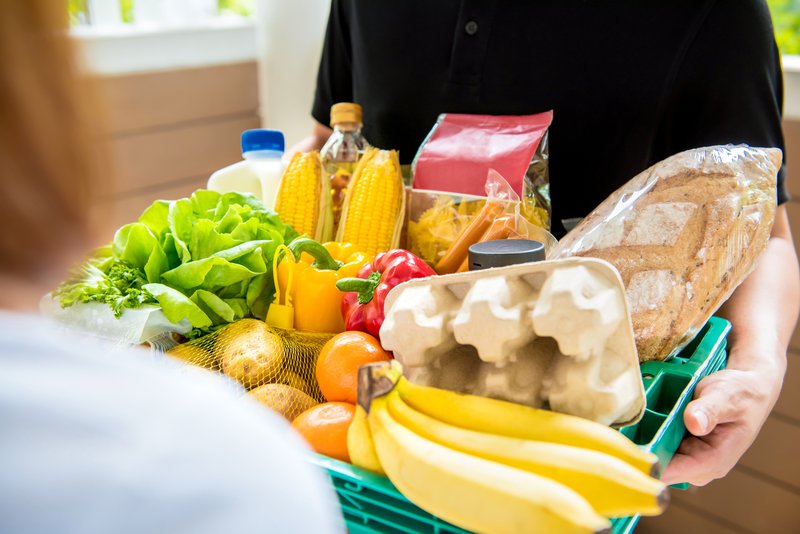
Which Food Items Are VATable?
VAT (Value Added Tax) rules can be confusing for businesses, especially when it comes to food and drink items. In the UK, most food items are zero-rated for VAT, meaning no VAT is charged. However, there are several exceptions, and understanding which food items are VATable can be essential for businesses that sell food products.
This guide will explain which food items are VATable and help you understand the implications for your business. If you’re still unsure, CANGAF Accountants can help guide you through VAT regulations and ensure you’re compliant with HMRC.
VATable Food Items
While many food items are zero-rated, some are subject to standard-rate VAT (20%) or reduced-rate VAT (5%). The items that are VATable typically include foods considered non-essential or luxury, or those served in a certain way. Here’s a breakdown of common VATable food items:
1. Confectionery and Snacks
Confectionery is generally subject to VAT at the standard rate. This includes items like:
- Chocolate bars and sweets (e.g., Mars bars, Haribo)
- Chocolate-covered biscuits (e.g., chocolate digestives)
- Cakes and pastries (unless considered a staple food item like a plain cake)
- Crisps and potato chips
- Popcorn and nuts that are roasted, salted, or otherwise treated
It’s important to note that plain biscuits and cakes are typically zero-rated, but adding chocolate makes them VATable.
2. Hot Takeaway Food and Drink
If food and drink are sold hot and intended for immediate consumption, they are subject to VAT. For example:
- Hot takeaway meals like fish and chips, burgers, or pizzas are VATable.
- Hot drinks, including takeaway coffee, tea, and hot chocolate, are also VATable.
- Hot sandwiches or other hot items sold by restaurants or takeaways incur VAT as well.
In contrast, cold food items (like a sandwich or salad sold cold) are generally zero-rated.

3. Alcoholic Beverages
All alcoholic drinks are subject to VAT at the standard rate. This includes:
- Beer
- Wine
- Spirits
- Liqueurs
Non-alcoholic beverages such as mineral water, fruit juice, and fizzy drinks also carry VAT.
4. Ice Cream and Frozen Desserts
Ice cream and similar frozen desserts are standard-rated. This includes:
- Ice cream cones
- Sorbets
- Frozen yogurt
- Ice lollies
If a dessert is meant to be consumed frozen, it will typically incur VAT.
5. Soft Drinks
Non-alcoholic soft drinks such as cola, lemonade, and energy drinks are VATable. This includes:
- Carbonated drinks
- Flavoured waters
- Sports and energy drinks
Still water and fruit juices with no added sugar are usually zero-rated, but sparkling water and sugary drinks are subject to VAT.
6. Catering and Restaurant Food
Food sold for immediate consumption (such as food from restaurants, cafés, or pubs) is VATable. This applies whether it’s consumed on the premises or as a takeaway. Some examples are:
- Sit-down meals at a restaurant
- Hot takeaway food from a fast-food outlet
- Catering services for events like weddings, parties, or business functions

7. Luxury Food Items
Certain luxury food items are also VATable, including:
- Smoked salmon
- Caviar
- Foie gras
Although these foods are for consumption, they fall under the luxury goods category, meaning VAT applies.
8. Packaged Ready-Made Meals
Pre-prepared or ready-to-eat meals that require only reheating are VATable. This includes items like:
- Microwaveable dinners
- Pre-packaged sandwiches
- Instant noodle pots
If the food requires minimal preparation and is sold as a complete meal, VAT is generally applied.
Zero-Rated Food Items
Despite many exceptions, the majority of basic groceries remain zero-rated. This includes:
- Bread, cereals, and grains (e.g., flour, oats, rice)
- Fruits and vegetables (whether fresh, frozen, or dried)
- Meat and poultry (fresh, frozen, or unprocessed)
- Dairy products (milk, butter, cheese)
- Fish and seafood
- Eggs
These essential foodstuffs are considered necessary for human consumption and are typically zero-rated.
Special Cases: Catering, Food Delivery, and Takeaways
For businesses offering catering, food delivery, or takeaway services, understanding VAT can be more complex. Hot takeaway food is VATable, while cold takeaway food (like sandwiches or salads) is often zero-rated. However, if a takeaway business also provides seating for customers, food consumed on the premises will be subject to VAT, even if it’s cold.
How CANGAF Accountants Can Help
Navigating VAT for food items can be tricky, especially if your business sells both zero-rated and VATable goods. Failing to charge VAT correctly can lead to HMRC penalties. CANGAF Accountants are experts in VAT compliance and can help your business ensure that VAT is accounted for correctly, both in pricing and in your returns.
- How many years can HMRC go back for self-assessment?
- How does HMRC know I have rental income?
- What do you do if you are new to completing self-assessment tax returns?
- Do HMRC check self-assessment returns?
- Making Tax Digital For Income Tax
If you’re unsure about which food items are VATable or need help managing your VAT obligations, CANGAF Accountants can provide the advice and support you need to stay compliant.
CANGAF Accountants
235 Tonge Moor Road, Bolton BL2 2HR
Email: info@cangafltd.com
Phone: 01204 859315
Conclusion
Understanding which food items are VATable is critical for businesses in the food industry. While many basic groceries are zero-rated, there are several exceptions, particularly when it comes to confectionery, takeaway food, alcohol, and luxury items.
By working with CANGAF Accountants, you can ensure your business applies the correct VAT rules, remains compliant, and avoids potential issues with HMRC. Whether you’re in the hospitality industry or run a retail food business, understanding the VAT rules is crucial to managing your finances effectively.


